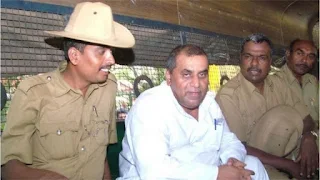Living 2022
Director: Oliver Hermanus
You remember a time when you were looking at the world that passed on by. You see the stream of people all grown up, handsome, poised, brimming with confidence. You tell yourself that you want to be like them with lots of friends and be likeable. You just could not wait to grow up. In your inner circle, you have friends who think highly of you. You consider yourself the life and soul of a party.
And poof! You find yourself to be an old fool. You are a party pooper, a bore, a high-strung individual and a killjoy. People shun you. The younger ones would rather stay away from you to have a good time. They look at you as Scrooge and find excuses to stay away with a six-foot pole.
You wonder whatever happened to the bubbly youngster that you once were. Have you become that lone child in the playground with a perpetual sourpuss face who does not want to share his toys?
We sometimes lock ourselves in a comfort zone. We think we are all mighty and immortal and that there is no need to conform to the needs of others. Everything changes when death stares you in the face. Suddenly you realise the futility of it all - the pride, the Ego and the meaningless self-aggrandisement. You want to leave your legacy, nevertheless. You become one-minded, wishing to leave behind something for people to remember you by. The mind is willing, but the body is not. You become jealous of all the young people with such a positive outlook on life and with one thing they have, but you do not - time.
Mortality grounds us. It gives a purpose in life. It questions the meaning of all life and, in its way, tries to justify the reason for our existence.
In a purely artistic way, this message is conveyed in this film. It is a remake of Akira Kurosawa's 1953 masterpiece 'Ikiru'. 'Ikiru', in turn, was based on Leo Tolstoy's short story. Read here about Ikiru.
Set in 1953, in the office of the City Council of London, where stiff upper lip and haughty British class consciousness rules, the head of the Department, Mr Middleton, is diagnosed as having terminal cancer. He is a lonely man, having lost his wife earlier in life. He is not exactly close to his son and daughter-in-law. They see him as a necessary burden they must tolerate before they can lay their hands on his retirement money to improve their living conditions. Mr Middleton is not exactly pally with his subordinates, either. He believes in maintaining his distance from them as the hierarchical order dictates.
Middleton dies, leaving everyone talking about his dedication. His workers vow to strive to improve the system. After the wake, as everyone returns to their daily routine, it is business as usual, back to its usual snail's pace. Nothing actually changed. All the resolutions to change are just small talks in the passing.
Without the fear of death, or if the thought of death is far away, people become complacent.
























